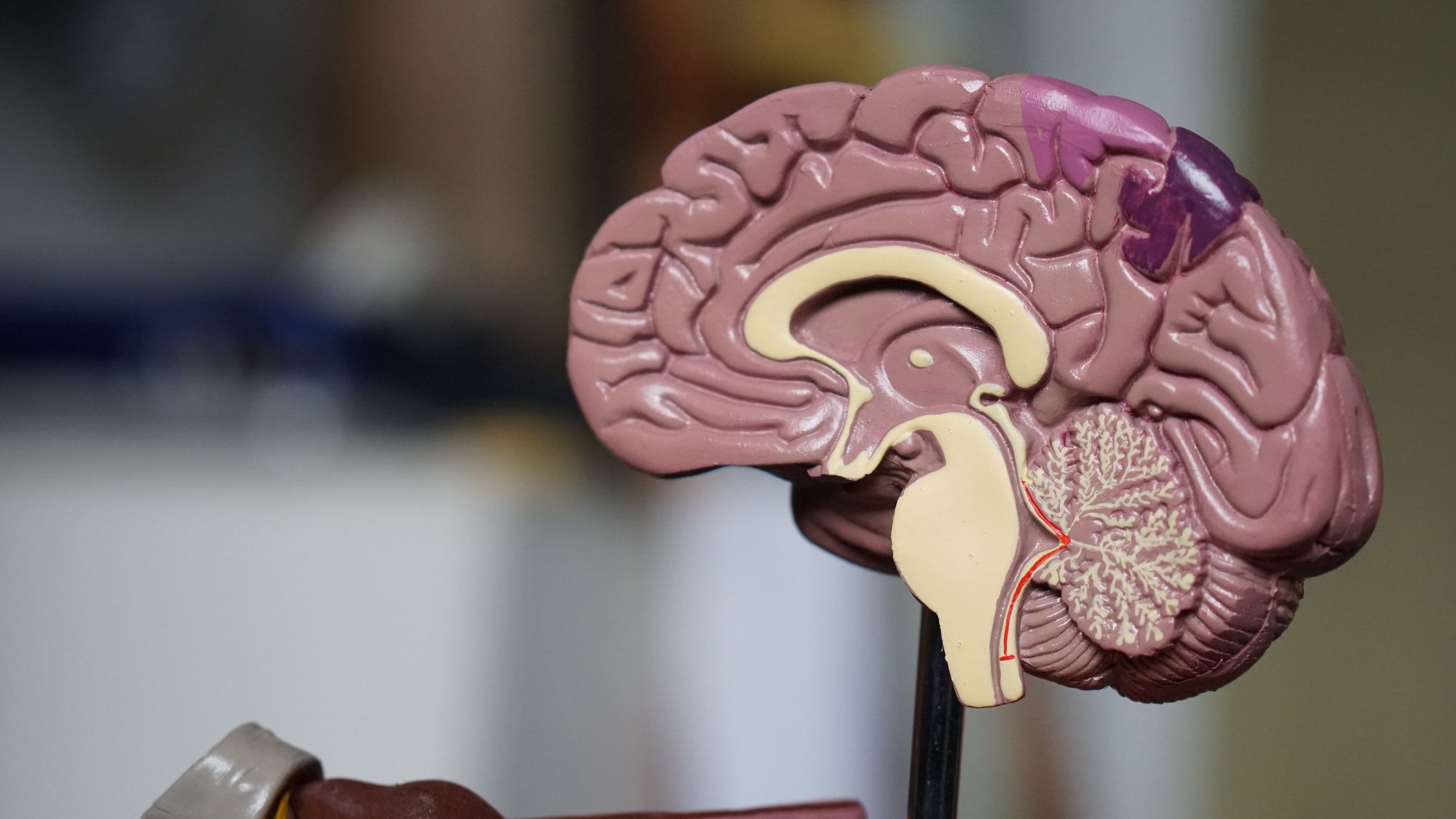Alzheimer’s disease is a progressive brain disorder that slowly destroys brain cells 1. Alzheimer's eventually leads to dementia, which is characterized by poor memory, reduced problem-solving skills, impaired cognitive function and an eventual inability to perform daily tasks.
Alzheimer’s disease is the most common cause of dementia, and accounts for up to 80% of all dementia cases 2. It typically affects older people, and is most commonly diagnosed in people over the age of 65.
There is no known cure for Alzheimer’s disease, but there are treatments available that can slow down its progression.
Symptoms of Alzheimer’s Disease
Alzheimer’s disease has a profound effect on cognitive function, though the disease progresses slowly at first. The symptoms of Alzheimer’s worsen over time, and their severity varies depending on the stage of the disease.
Common symptoms of Alzheimer’s disease include 3:
- Memory loss (especially that which affects day to day life, such as inability to retain new information or keep track of appointments)
- Difficulty performing familiar tasks, such as operating the television or oven
- Difficulty with problem solving
- Struggling with speech or writing
- Becoming disoriented or confused about time or location (or getting lost in familiar places)
- Difficulty following conversations
- Decreased judgement
- Decreased personal hygiene
- Changes in mood, personality or behaviour (e.g. apathy, depression, social withdrawal, irritability, aggression, distrust, delusions, wandering, etc.)
Causes of Alzheimer’s Disease
Alzheimer’s disease is thought to be caused by a build-up of proteins (called amyloid and tau) in the brain 4. These create ‘plaques’ and ‘tangles’ around brain cells that cause them to slowly deteriorate, and eventually result in the symptoms of dementia.
The exact causes of this protein build up are not yet fully understood, but researchers have identified several possible risk factors for Alzheimer’s disease. In most cases, it is believed that Alzheimer’s is caused by a variety of genetic, environmental and lifestyle-related factors which have a cumulative effect on the brain over the course of a person’s life 5.
Risk Factors for Alzheimer’s Disease
Risk factors which may increase your likelihood of developing Alzheimer’s disease include:
Age - Alzheimer’s disease is most commonly diagnosed in people over the age of 65, and your risk of developing the condition increases as you get older.
Genetics - Alzheimer’s disease has a known genetic factor. Researchers have found that people with an affected immediate family member (like a parent or sibling) are more likely to develop the condition themselves 6.
Gender - Gender is a very significant risk factor for Alzheimer’s disease, as around two thirds of people diagnosed with the condition are women 7.
Down Syndrome - People with Down Syndrome are far more likely to develop Alzheimer’s disease than people without this condition 8.
Head injuries - Certain types of head injuries (such as severe injuries, injuries sustained around the age of 55 and repeated mild injuries) may increase your risk of developing Alzheimer’s later in life 9.
Although not everyone who sustains a head injury will get Alzheimer’s disease, one study suggested that moderate-to-severe head injuries can more than double a person’s risk of developing dementia 10.
Other lifestyle factors - Many vascular health conditions (such as heart disease, diabetes, stroke, high blood pressure and high cholesterol) appear to increase a person’s risk of developing Alzheimer’s 11. Therefore, maintaining a healthy lifestyle (with a healthy diet, exercise, cognitive stimulation and social interaction) may help to reduce the risk.
Stages of Alzheimer’s Disease
Alzheimer’s is a disease that progresses in stages, and each is characterized by different symptoms.
The condition has three general stages: early (or mild) Alzheimer’s, middle (or moderate) Alzheimer’s and late (or severe) Alzheimer’s 12.
Early Stage/Mild Alzheimer’s Disease
The early stage of Alzheimer’s typically lasts 2-4 years, and is characterized by mild symptoms that may not be widely apparent 13. The individual is still capable of performing everyday tasks (such as driving, working and socializing) without assistance.
However, they may also experience minor memory lapses (such as forgetting appointments, losing keys or forgetting familiar words) that may be noticeable to close friends and family.
Symptoms of early stage Alzheimer’s disease include:
- Difficulty remembering familiar words or names
- Difficulty remembering new information
- Difficulty performing tasks
- Losing or misplacing items
- Increased difficulty with planning and organization tasks
Middle Stage/Moderate Alzheimer’s Disease
The middle stage of Alzheimer’s disease can last a long time, and patients with the condition may experience moderate Alzheimer’s for 2-10 years 14.
During the middle stage, the patient’s symptoms will worsen and become more apparent, though they will still be able to live somewhat independently. Their memory lapses will become more pronounced and they will have greater difficulty in performing tasks. Patients may also experience mood and behaviour changes.
Symptoms of middle stage Alzheimer’s disease include:
- Social withdrawal
- Becoming forgetful of events and personal history
- Inability to recall personal information such as home address or phone number
- Trouble with bladder and bowel control
- Difficulty with daily tasks, such as choosing clothing
- Changes in sleep patterns
- Increasing tendency to wander and get lost (even in familiar settings)
- Personality and behaviour changes (e.g. becoming suspicious or argumentative, or repetitive motions like hand wringing)
Late Stage/Severe Alzheimer’s Disease
The final stage of Alzheimer’s disease lasts 1-3 years 15. During late stage Alzheimer’s, patients will lose their ability to perform even simple tasks. They will be unable to respond to their environment, engage in conversation and later in the stage, control their movements.
Symptoms of late stage Alzheimer’s disease include:
- No awareness of surroundings or personal experiences
- Inability to carry out personal care tasks
- Difficulty communicating
- Vulnerability to infections (e.g. pneumonia)
- Decline in physical abilities (including walking, sitting and swallowing)
Diagnosis of Alzheimer’s Disease
Alzheimer’s disease is diagnosed using a series of tests designed to evaluate a person’s memory, cognitive skills, behavioural changes and functional abilities 16. The doctor may also perform tests to rule out other possible causes of cognitive decline.
During the appointment, the doctor will also review the patient’s symptoms, family medical history and medication history. If Alzheimer’s disease is suspected, the doctor may also order a brain imaging scan to check for damage and confirm the diagnosis.
Treatment of Alzheimer’s Disease
There is currently no known cure for Alzheimer’s disease; however, there are treatments available to slow progression through the stages of the disease.
Commonly prescribed medications for the treatment of Alzheimer’s disease include 17:
- Donepezil (Aricept) - Donepezil is used to slow symptom progression in cases of mild, moderate and severe Alzheimer’s disease.
- Galantamine (Razadyne) - Galantamine is prescribed to slow symptoms in cases of mild or moderate Alzheimer’s.
- Memantine (Namenda) - Memantine is sometimes prescribed in combination with other Alzheimer’s medications, and can slow symptoms in people with moderate or severe forms of the disease.
- Rivastigmine (Exelon) - Rivastigmine is used to slow symptom progression in mild to moderate cases of Alzheimer’s disease.
- Memantine extended-release and donepezil (Namzaric) - This treatment may be prescribed to patients with moderate to severe Alzheimer’s disease.
Other treatments for Alzheimer’s disease include Cognitive Behavioural Therapy (CBT), which may help to treat behavioural symptoms and make patients feel more comfortable 18.
Mood and behavioural changes are also sometimes addressed with antidepressant and antianxiety medications.
Moderate exercise (such as walking) may also benefit mood in Alzheimer’s patients, though people with moderate to severe memory problems should be supervised for this.
Quick Facts About Alzheimer’s Disease
Worldwide Incidence Rates of Alzheimer’s Disease
Around 50 million people worldwide are living with dementia 19. Alzheimer’s is the most common cause of dementia, and is thought to account for up to 80% of cases.
Alzheimer’s Disease and Age
Alzheimer’s disease is strongly linked to age. Most people with Alzheimer’s disease are aged 65 or older, and the condition is thought to affect 1 in 10 people in this age group 20.
Alzheimer’s Disease and Gender
Women are significantly more likely to develop Alzheimer’s than men and and dementia affects twice as many women as men worldwide 21.
1"Alzheimer's Disease Fact Sheet | National Institute on Aging." https://www.nia.nih.gov/health/alzheimers-disease-fact-sheet.
2"What is Alzheimer's Disease? Symptoms ...." https://www.alz.org/alzheimers-dementia/what-is-alzheimers.
3"Alzheimer's Disease: Everything You Need to Know - Healthline." https://www.healthline.com/health/alzheimers-disease.
4"Alzheimer's disease - Causes - NHS." https://www.nhs.uk/conditions/alzheimers-disease/causes/.
5"Alzheimer's disease - Symptoms and ...." 8 Dec. 2018, https://www.mayoclinic.org/diseases-conditions/alzheimers-disease/symptoms-causes/syc-20350447.
6"Is Alzheimer's Hereditary / Genetic? | Alzheimer's Association." https://www.alz.org/alzheimers-dementia/what-is-alzheimers/causes-and-risk-factors/genetics.
7"Sex and Gender Differences in Alzheimer's Disease Dementia." 30 Dec. 2018, https://www.ncbi.nlm.nih.gov/pmc/articles/PMC6390276/.
8"Alzheimer's Disease in People with Down Syndrome ...." https://www.nia.nih.gov/health/alzheimers-disease-people-down-syndrome.
9Alzheimer's: Can a head injury increase my risk? - Mayo Clinic." https://www.mayoclinic.org/diseases-conditions/alzheimers-disease/expert-answers/alzheimers-disease/faq-20057837.
10"Head injury doubles the risk of Alzheimer's disease - NCBI." https://www.ncbi.nlm.nih.gov/pmc/articles/PMC1173459/.
11"What Causes Alzheimer's Disease? | alz.org." https://www.alz.org/alzheimers-dementia/what-is-alzheimers/causes-and-risk-factors.
12"Alzheimer's Stages - Early, Middle, Late Dementia Symptoms ...." https://www.alz.org/alzheimers-dementia/stages.
13-15"The Progression of Alzheimer's Disease: What Are the Stages?." https://www.healthline.com/health/stages-progression-alzheimers.
16"Diagnosing Alzheimer's: How Alzheimer's is diagnosed ...." https://www.mayoclinic.org/diseases-conditions/alzheimers-disease/in-depth/alzheimers/art-20048075.
17"Alzheimer's Disease Drugs: A List - Healthline." https://www.healthline.com/health/alzheimers-disease-drugs.
18"The Progression of Alzheimer's Disease: What Are the Stages?." https://www.healthline.com/health/stages-progression-alzheimers.
19"Dementia - World Health Organization." 21 Sep. 2020, https://www.who.int/news-room/fact-sheets/detail/dementia.
20"Alzheimer's Facts and Figures Report ...." https://www.alz.org/alzheimers-dementia/facts-figures.
21"Why is dementia different for women? | Alzheimer's Society." https://www.alzheimers.org.uk/blog/why-dementia-different-women.


